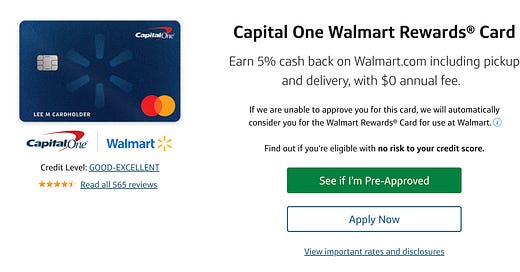Walmart And Capital One Call It Quits
IL Bill Prohibits Interchange On Taxes & Tips, CFPB Releases Interpretative Guidance on BNPL, Little Progress In Synapse Bankruptcy
Hey all, Jason here.
Somehow it’s already time for Money2020 — the Europe edition, anyway. I’ll be onsite at the conference in Amsterdam on Tuesday & Wednesday.
For those attending, you can catch me live in the MoneyPot podcast booth twice: on Tuesday at 10:00am, alongside Wirecard whistleblower Pav Gill, discussing “Fintech’s Hidden Stories,” and on Wedn…



